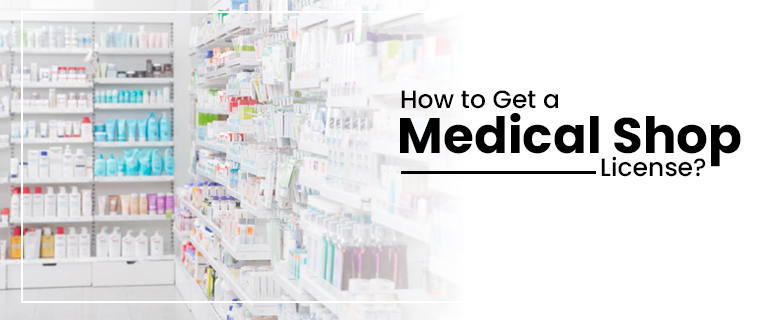How to Get a Medical Shop License?
In the realm of healthcare, the role of medical shops, also known as pharmacies, stands as a cornerstone for public well-being. These establishments not only dispense essential medicines but also serve as a reliable source of healthcare advice and products. However, to operate a medical shop in India, one must navigate a labyrinth of regulations and licensing requirements to ensure the safe and lawful distribution of pharmaceuticals. This article delves into the vital process of obtaining a medical shop license, shedding light on the eligibility criteria, documentation, and procedural steps necessary for pharmacists and entrepreneurs embarking on this essential journey in healthcare service.
Read also this -: How to Obtain a Drug License for a Medical Store1. Eligibility Criteria:
The applicant should typically be a registered pharmacist or have a qualified person (a registered pharmacist) employed at the medical shop.
2. Business Entity:
Decide on the type of business entity under which you want to operate your medical shop. It can be a sole proprietorship, partnership, or a registered company.
3. Premises:
Ensure that you have suitable and compliant premises for the medical shop. The premises should comply with the standards and requirements set by the state's drug control authority.
4. Documents Required:
To embark on the journey of establishing a medical shop in India, a crucial step is to gather the requisite documents that substantiate your eligibility and intent to operate within the bounds of legal and regulatory frameworks. These essential documents encompass a broad spectrum of proof and certifications. First and foremost, you'll need to provide proof of your identity and residential address, which can include documents such as Aadhar card, voter ID, or passport. Passport-sized photographs of the applicant are also required for official records.
Furthermore, if you happen to be the registered pharmacist overseeing the operations, you should be prepared to furnish proof of your educational qualifications. For those entering into partnerships or involving a company structure, the partnership deed or memorandum and articles of association must be part of your documentation.
In addition to personal records, the premises where the medical shop will be located come under scrutiny. This necessitates providing either the rental agreement or ownership documents for the premises, ensuring legal authorization for your operations. To provide clarity on the physical layout and adherence to zoning regulations, a site plan and layout plan of the premises must be included.
For rented properties, acquiring a No Objection Certificate (NOC) from the landlord becomes mandatory, serving as evidence of their consent for the establishment of a medical shop on their premises. An affidavit confirming compliance with the conditions necessary for establishing a medical shop should also be presented.
5. Registration under GST:
You may need to register your medical shop under the Goods and Services Tax (GST) regime, depending on your turnover.
6. Application Process:
Contact the local or state drug control department or authority responsible for issuing pharmacy licenses. You must submit your application and the necessary paperwork.
7. Inspection:
After submitting your application, the drug control authority may conduct an inspection of your premises to ensure they meet the necessary standards and requirements.
8. License Fee:
Pay the prescribed license fee, which varies from state to state.
9. Verification:
The drug control authority will verify your documents and premises. If everything is in order, they will issue the medical shop license.
10. Renewal:
Keep in mind that pharmacy licenses typically need to be renewed periodically, usually on an annual basis.
11. Compliance:
Read also this -: Prerequisites for Obtaining a Drug LicenseOnce you have obtained the license, ensure that you comply with all regulations regarding the storage, sale, and distribution of medicines and pharmaceutical products.
As the healthcare landscape continues to evolve, the significance of medical shops remains unwavering. They are not just points of sale but trusted partners in promoting public health and well-being. The process of obtaining a medical shop license in India, as outlined in this article, reflects the commitment to quality, safety, and compliance required in the pharmaceutical sector. By adhering to the regulations and diligently following the licensing procedures, pharmacists and healthcare entrepreneurs contribute to a healthcare ecosystem that places patient safety and access to medicines at its core. In this endeavor, they ensure that medical shops continue to play an indispensable role in safeguarding the health of communities across the nation.




Comments
Post a Comment